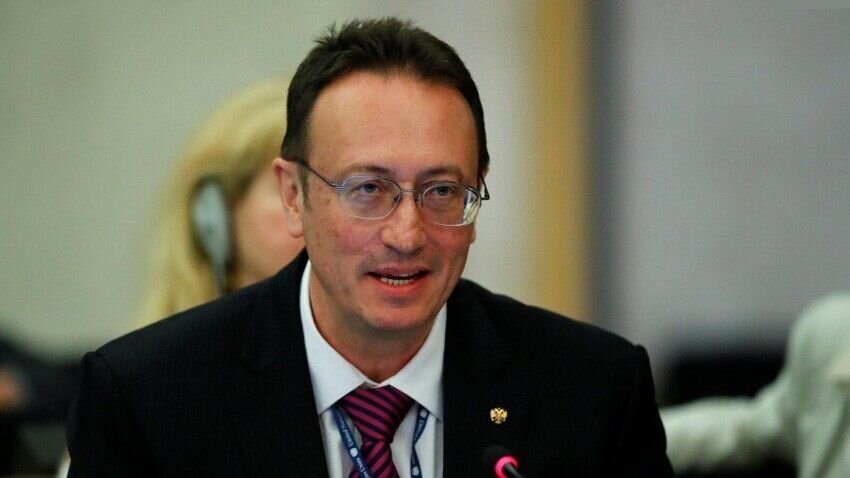Iran does not seek nukes: Russia

TEHRAN – A senior Russian diplomat has said that there is no evidence that Iran is seeking to build nuclear weapons and review its participation in the Nuclear Non-Proliferation Treaty (NPT).
The diplomat, Vladimir Yermakov, who is director of the Russian Foreign Ministry's Non-Proliferation and Arms Control Department, underlined that Iran remains committed to its obligations under the NPT.
“Iran has been and remains a conscientious participant in the Treaty on the Non-Proliferation of Nuclear Weapons. The conclusion of the JCPOA in 2015 helped to finally and irrevocably remove all the questions that the [International Atomic Energy Agency] had to Tehran at that time,” Yermakov told the Russian Sputnik news agency.
The Russian diplomat also highlighted the fact that Iran is subject to a strict verification regime by the International Atomic Energy Agency (IAEA).
“After that, for several years Iran remained the most verified state among agency members. No deviations from its obligations were identified,” Yermakov said.
He added, “There is no evidence that would indicate Tehran's intention to ever reconsider its participation in the NPT and start developing a nuclear explosive device.”
Negotiations over reviving the 2015 Iran nuclear deal, officially known as the Joint Comprehensive Plan of Action (JCPOA), kicked off in April 2021 after former U.S. President Donald Trump unilaterally pulled the U.S. out of the JCPOA.
The talks have been put on hold over the last few months.
Deputy Foreign Minister of Iran for Political Affairs Ali Bagheri Kani paid a surprise visit to the Qatari capital Doha on Tuesday a day after Iranian President Ebrahim Raisi spoke over the phone with Qatari Amir Sheikh Tamim bin Hamad Al Thani.
Iranian media reported that Bagheri Kani, who has been Iran’s top nuclear negotiator in the Vienna talks over reviving the 2015 Iran nuclear deal, will discuss bilateral, regional and international issues.
Upon his arrival, Bagheri Kani met with his Qatari counterpart, Mohammad al-Khulaifi. In the meeting, the two senior diplomats discussed bilateral, regional, and international issues.
Bagheri Kani also addressed issues related to the West’s approach to terrorism and human rights, saying that every country taking a political path different from the West will be accused of violating human rights and supporting terrorism.
The Qatari foreign ministry said the two diplomats also discussed the JCPOA. “During the meeting, they discussed bilateral cooperation between the two countries and ways to support and develop them, in addition to discussing the latest developments in the negotiations of the return to the joint action plan, as well as several regional and international issues of joint interest,” the Qatari foreign ministry said in a statement.
During the talks in Vienna over reviving the JCPOA, Russia also played a key role in the talks. Iranian and Russian officials held regular meetings in Vienna during the talks.
Russian Deputy Foreign Minister Sergei Ryabkov has recently said that the JCPOA is at risk because of the behavior of the West, especially in regard to the West pushing for a censure resolution against Iran at the IAEA’s Board of Governors.
“JCPOA fate is hanging by a thread. Things got worse after a group of states pushed the anti-#Iran resolution at #IAEA #BoG. A classic example that some don’t learn from experience,” Ryabkov said, according to the Russian foreign ministry.
He added that Russia believes that with political will the agreement can be finalized fast.
Mikhail Ulyanov, Russia’s ambassador to international organizations in Vienna, also reiterated the position of Ryabkov.
“That is true. The question is if all the participants in the #ViennaTalks on restoration of the #JCPOA are ready to finalise the negotiations on a positive note? As of now we don’t have a definitive answer to this legitimate question,” Ulyanov said on Twitter.
